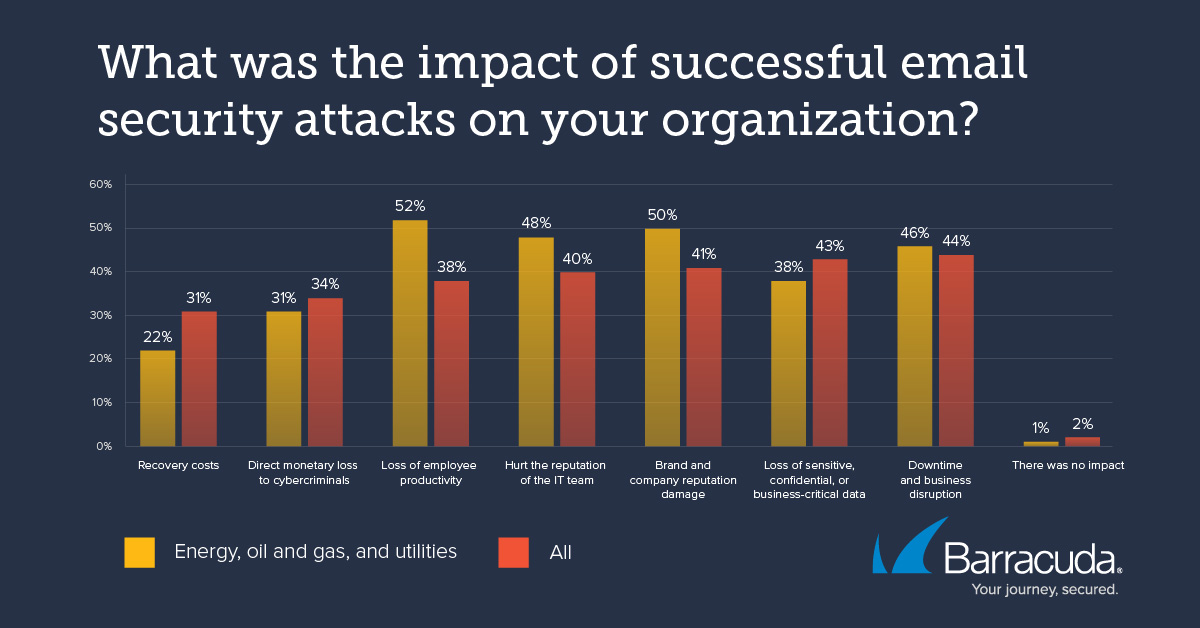The rise of cyber security threats in the energy sector

Cyber security threats in the energy and utilities sector are on the rise. The energy sector has become a major target for sophisticated spear-phishing attacks, posing significant risks to its stability and security. This alarming increase in the scale and impact of cyberattacks is causing substantial financial and reputational damage.
Cyber threats are continuously evolving to target specific vulnerabilities in the industry and artificial intelligence has allowed these threats to become more sophisticated.
Preventative measures are possible. In this article, we will explore the points of vulnerability within the energy and utilities sector and highlight the power of robust proactive cybersecurity protection.
The rising tide of spear-phishing attacks
Spear phishing – a type of phishing attack in which a specific individual or organization is targeted – is particularly prevalent within the energy and utilities industry. Spear phishing is an email-based attack strategy that prompts a recipient to click a link, download an attachment, or enter sensitive information. The result is often a loss of personal data or the downloading of malicious software.
The impact is significant. Barracuda’s 2023 report on email security trends notes that only 2% of respondents indicated that email attacks had no impact on their organization. Downtime and business disruption, loss of confidential data, and reputational damage topped the list of impacts of successful attacks.
The impact on the utilities and energy sector is significant. In 2022, 73% of energy and utility organizations experienced a successful spear-phishing attack, compared to a 50% average across industries. The average cost of recovery from the most expensive attack in this sector reached $1.31 million, reflecting the complex challenges in managing dispersed digital assets and the severe financial penalties incurred.
The prevalence and impact of cyberattacks within the industry make cybersecurity provisions for energy and utility infrastructure a high priority.

Industry infrastructure impacts vulnerability
Digital transformation
Rapid digital transformation within the energy and utilities sector has increased the number of potential entry points for cyber attacks on infrastructure. While technologies such as IoT (Internet of Things) systems provide interconnected remote access to critical infrastructure, they also increase access points for cybercriminals. Additionally, reliance on third-party supply chains further expands the attack surface and increases vulnerabilities.
Remote access
Similarly, technological advancements can be weaponized by cybercriminals to target energy and utility infrastructure remotely. Common remote access trojans (RATs) like Agent Tesla, AZORult, and Formbook can be used to steal sensitive data and disrupt operations. Improvements in cybersecurity measures must keep pace with technological advancements if we are to continue to protect critical infrastructure.
Increasingly sophisticated cyber tactics increase the threat level
The rise of artificial intelligence, particularly large language models, has contributed to an increase in highly convincing cyber attacks.
Email personalization
Highly targeted emails mimic legitimate business correspondence, referencing accurate personal information such as names, departments, and addresses while incorporating authentic logos and other branding elements. This high level of personalization leads to a more sophisticated attack that employees are more likely to mistake for genuine correspondence, putting the organization at risk.
High-stakes attacks
There have been numerous recent large attacks on energy and utility companies, occurring worldwide. Incidents such as the May 2021 attack on the US Colonial Pipeline and a trio of cyberattacks on three German wind companies highlight the significant scale and impact of attacks within this sector.
Organizational preparedness
Research indicates that 98% of organizations feel underprepared to deal with email attacks, 34% feel underprepared to deal with malware, and 28% feel unprepared to deal with spam. Security awareness training equips employees and stakeholders alike with the knowledge and ability to recognize and respond appropriately to cyber threats.
A securing future starts with robust cybersecurity investment
The energy sector is a vital part of the national infrastructure and faces an ever-evolving threat of spear-phishing attacks.
Energy companies can protect their operations, sensitive data, and the stability and security of the energy grid by investing in robust cybersecurity solutions, implementing comprehensive security protocols, customizing training, and maintaining continuous vigilance.
Jericho Security's AI-powered simulation and training platform simulates spear-phishing scenarios. Training your employees to recognize and respond to sophisticated attacks provides a unified layer of defense against personalized cyber attacks.
Protect the future of your organization – try Jericho Security today.